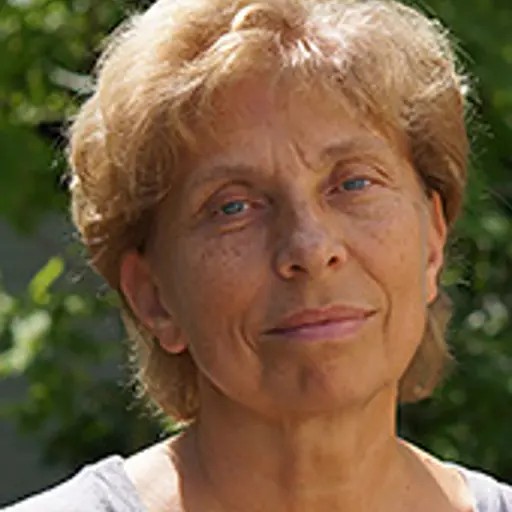
For whom do we build cities? How can we understand the mechanisms by which people are included or excluded in the city? How do urban planning and architectural and urban design contribute towards processes of spatial injustice? And how can they also contribute towards change?
Introduction
The ambition of this research area is to work towards more just and equal societies through the study of contemporary and historical socio-spatial practices. Whatever their scale, shape, or relational geography, the practices we study are approached through critical methods and theories. Research draws from the humanities and social sciences, from architecture and planning, from theory and history, and has a strong focus on societal practices. To provide critical perspectives on space, the research in this area aims to promote change and transformation at different levels including society at large, politics and policy making, academic fields of inquiry, and professional practice. Questions at the heart of Critical Spatial Studies include: For whom do we build cities? How can we understand the mechanisms by which people are included or excluded in the city? How do urban planning and architectural and urban design contribute towards processes of spatial injustice? And how can they also contribute towards change?
Critical Spatial Studies consists of two fields:
Critical Urban Studies
In Critical Urban Studies the focus is directed towards urban inequalities, specifically how socio-spatial relations shape urban geographies with privileges for some and misrecognition for others. Research with this focus critically analyses the causes for changing urban geographies, how they are embedded in societal and ideological discourses, and what their socio-spatial consequences are. Research draws from post-structuralist, feminist, political, decolonial and urban theory, and typically deals with urban geographies, such as the consequences of growing socio-economic inequalities, segregation, housing insecurity and homelessness, ecological inequalities, migration, and racial capitalism.
Critical Architectural Studies
Critical Architectural Studies examines architecture and urbanism in relation to the ideas and forces that shape them. Engaging with historical and theoretical perspectives, it addresses the question of quality and authenticity as fundamental to sustainable building. Recognizing architecture’s lasting impact on society, it critiques superficial or short-sighted practices that fail to engage with cultural values. One aim is to discuss broader ethical and societal implications of different ways of thinking about architecture, to fortify architectural approaches. Another aim is to provide inspiration for the practice – both private and public – through contemporary and historic examples.
Research Area members
Research Area Leader
Members

- Lecturer, Architectural Theory and Method, Architecture and Civil Engineering

- Part-time fixed-term teacher, Architectural Theory and Method, Architecture and Civil Engineering
- Artistic Instructor, Urban Design and Planning, Architecture and Civil Engineering

- Artistic Teacher, Architectural Theory and Method, Architecture and Civil Engineering

- Postdoc, Urban Design and Planning, Architecture and Civil Engineering

- Associate Professor, Architectural Theory and Method, Architecture and Civil Engineering
- Doctoral Student, Urban Design and Planning, Architecture and Civil Engineering

- Vice President, Campus development

- Studierektor, Architecture and Civil Engineering
Affiliated members

- Senior Lecturer, Urban Design and Planning, Architecture and Civil Engineering

- Associate Professor, Building Design, Architecture and Civil Engineering

- Artistic Teacher, Urban Design and Planning, Architecture and Civil Engineering

- Associate Professor, Building Design, Architecture and Civil Engineering
Greta Faxberg
Jessica Lundin
Recent publications
What’s the future for planning in a time of democratic retreat, white supremacy, and silence?
Authors: Kristina Grange
Year: 2023
'Who counts as a "who"?' Homeless women and geographies of misrecognition in the city of Gothenburg, Sweden
Authors: Kristina Grange
Year: 2025
Imaginaries and expulsion: How 1000 temporary accommodation units for refugees in the city of Gothenburg became 57
Authors: Kristina Grange
Year: 2022
Notes from the Trenches: Reflections from Recent PhD Graduates on Navigating the Academy
Authors: Deidre Zoll, Raksha Vasudevan, Bri Gauger, Sarah Gelbard, Carla Maria Kayanan, Julie Mah, Ariadna Reyes
Year: 2023
“We Don’t Want You Here:” Gender Discrimination and Women’s Responses in American Planning, 1970-1990
Authors: Bri Gauger
Year: 2022
Ongoing research
Women in social and structural homelessness: negotiations about responsible housing provision and how social and geographical exclusion can be prevented
Participants: Joshua Levy, Kristina Grange
Year: 2023-2026
Just transitions
Participants: Sara Malm, Kristina Grange, Nils Björling
Year: 2023-2027
Valuable Labour: Academic Service in Promotion and Tenure
Participants: Bri Gauger, Martine Buser
Years: 2021-2025

Publications
In Chalmers’ research portal you will find publications from the members of the Critical Spatial Studies Research Area.

Projects
In Chalmers’ research portal you will find projects from the members of the Critical Spatial Studies Research Area.